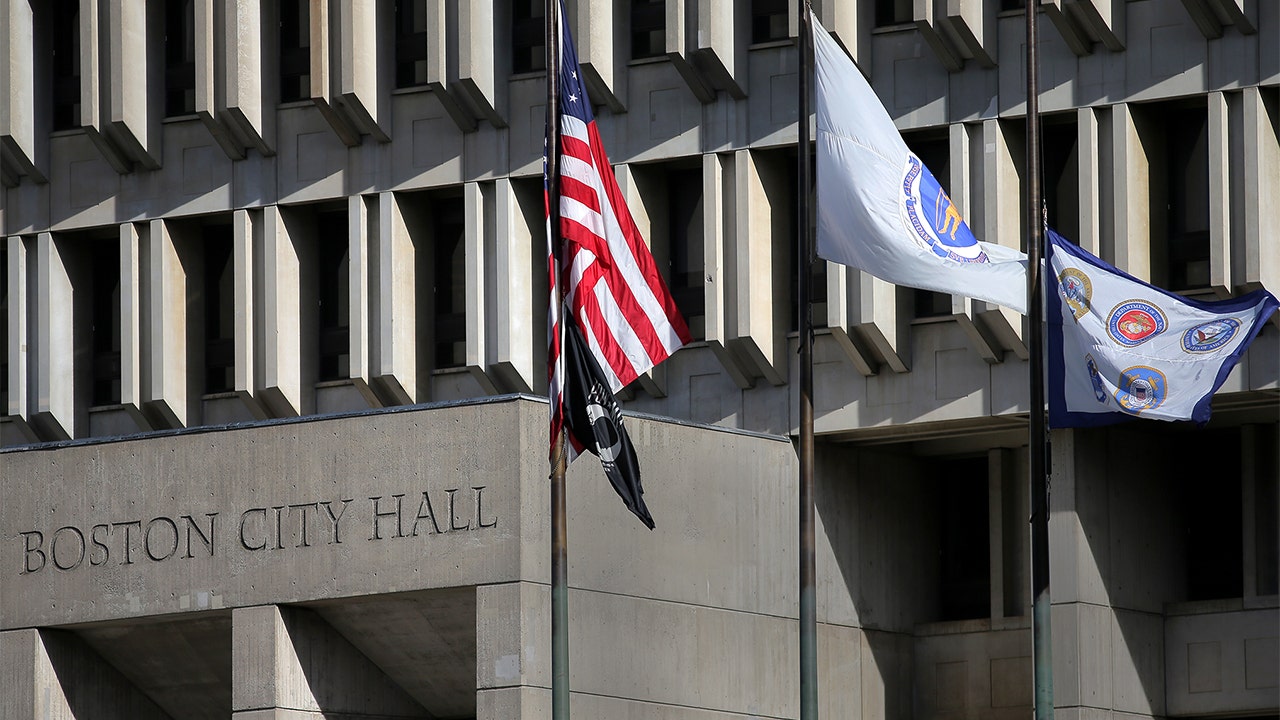President Biden plans to deliver a prime-time farewell address to the nation on Wednesday, putting a capstone on his five-decade political career just days before he leaves an office he has long revered and is leaving only reluctantly.
The White House would not disclose what Mr. Biden plans to say in his speech, set for 8 p.m. Eastern. But in his final months he has been seeking to cement a legacy as a transformative president that stabilized domestic politics while bolstering America’s leadership abroad, one who ushered the nation out of a pandemic, made historic investments in infrastructure and clean energy, and worked to strengthen democratic institutions both nationally and globally.
Whatever image the president seeks to project, it is set against a backdrop in which he is leaving office deeply unpopular and handing the reins to a successor, Donald J. Trump, whom he disdains and has repeatedly said is unfit to hold power.
Even the location of the speech, from behind the Resolute Desk in the Oval Office, is a reminder that Mr. Biden is not departing as he may have wanted. His last prime-time address delivered there was the 11 minutes he spent in July explaining why he dropped out of the presidential race under pressure from his own party as questions mounted about his age and fitness for another term.
Since Mr. Biden left the race and especially since Mr. Trump’s election victory in November, the president has struggled to maintain the spotlight.
“Farewell addresses are challenging because they aim to put the capstone on an era at a time when most of the country has already moved on to the next one,” said Robert Schlesinger, the author of the book “White House Ghosts: Presidents and Their Speechwriters.”
The farewell address, a tradition that dates back to George Washington, is one of a series of speeches Mr. Biden is giving in his last days in office. By turns, he has highlighted domestic accomplishments, such as his “historic” conservation record, and has argued that he has improved America’s position in the world. He will give at least two more speeches this week in which he is expected to continue building the case that he made extraordinary progress in one term. He
And in remarks as recently as last week, he has remained defiant about the presidential race, saying that he believed that he could have beaten Mr. Trump and that his decision to drop out was motivated by his desire to unify the Democratic Party.
“I think I would have beaten Trump, could have beaten Trump, and I think that Kamala could have beaten Trump,” Mr. Biden said, adding: “I thought it was important to unify the party. Even though I thought I could win again, I thought it was better to unify the party.”
Mr. Biden has told donors that he intends to stay involved in the party after he leaves office. Last week, when asked what role he planned to take on post-presidency, he responded: “I’m not going to be out of sight or out of mind.”
In an address focused on foreign policy at the State Department on Monday, Mr. Biden said he had fortified America’s place as a global leader and left it in a stronger position with allies and foes than it was four years ago.
“Make no mistake, there’s serious challenges the United States must continue to deal with,” Mr. Biden said. “But even so, it’s clear my administration is leaving the next administration with a very strong hand to play. And we’re leaving them an America with more friends and stronger alliances, whose adversaries are weaker and under pressure, an America that once again is leading.”
Previous presidents have used their farewell address to both reflect on their records and warn of challenges ahead.
In 2001, President Bill Clinton used his farewell address to warn his successor not to diminish the country’s economic prosperity and global presence. In 2009, President George W. Bush delivered a somber address, where he acknowledged “setbacks” during his eight years in office, but said he hoped Americans understood that he did what he thought was right. Before turning the reins over to Mr. Trump in 2017, President Barack Obama warned that economic inequity, racism and closed-mindedness threatened democracy and unity.
In his farewell address in 2021, Mr. Trump, politically isolated and facing impeachment after the attack on the Capitol by a mob of his supporters on Jan. 6, told supporters who had gathered to watch him take off from the tarmac at Joint Base Andrews: “Goodbye. We love you. We will be back in some form.”
Historians said Mr. Biden’s address could be reminiscent of the one by Dwight D. Eisenhower, whose farewell is considered among the most memorable since George Washington’s, and like Mr. Biden’s, was delivered after a half-century of public service.
William Hitchcock, Mr. Eisenhower’s biographer, said he would expect that Mr. Biden would make veiled references to the dangers to democracy and an “ethos of service,” painting a contrast with Mr. Trump, if not explicitly.
“It would be a reasonable for him to deliver a personal farewell, focused on a life of public service, because he literally gave his life and indeed his family members’ lives to this country,” Mr. Hitchcock said. “And I think projecting sacrifice and service is something he’s comfortable doing. The contrast to his successor will be obvious to his listeners. That’s not something he has to do.”
Both Mr. Biden and Mr. Eisenhower left after their handpicked successors — their vice presidents — lost their elections. But Mr. Eisenhower, who at the time was the oldest president to serve, did not explicitly criticize his young successor, John F. Kennedy, though he thought little of him.
But the gravity of the moment will be palpable, he said.
“It’s a bitter moment of transition,” Mr. Hitchcock added, “just as it was for Eisenhower.”






